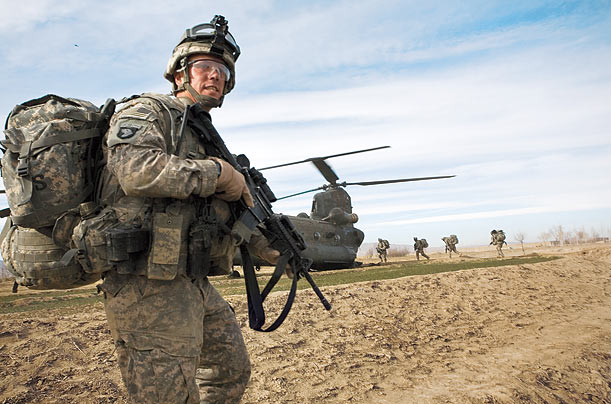
It's his war now. When President Barack Obama ordered two more U.S. combat brigades into Afghanistan, deploying 17,000 troops to join the 36,000-strong U.S. force already in the theater, he sent a message about his Administration's priorities (the units had been slated for Iraq) and embraced a tree of thorns. He won't disentangle himself anytime soon.
"This increase," said Obama, distancing himself from the Bush Administration, "is necessary to stabilize a deteriorating situation in Afghanistan, which has not received the strategic attention, direction and resources it urgently requires." There could be more deployments to come. If the U.S. commander in Afghanistan gets his way, 13,000 more troops could eventually end up there, focused on rolling back a growing Taliban insurgency.
Troops alone won't do that job, and Obama knows it. "I am absolutely convinced that you cannot solve the problem of Afghanistan, the Taliban, the spread of extremism in that region, solely through military means," he told an interviewer. But more soldiers are needed, if only to stop the grim litany of bad news from Afghanistan getting worse. With sanctuaries across the border in Pakistan — which the government there seems in no hurry to close down — and with a growing acceptance of the Taliban's strength in Afghanistan, militants have the wind at their back. They welcomed U.S. envoy Richard Holbrooke to Kabul by attacking three government buildings, leaving 26 people dead.
"There is no more solemn duty as President," Obama said as he announced the troop movements, "than the decision to deploy our armed forces into harm's way." The President has been writing a letter to the family of each soldier killed in Afghanistan (and Iraq), personally signing it BARACK. So far, those casualties could be attributed to choices his predecessor — not Obama — made about the risks to take with young lives. No more. They're on his watch now.